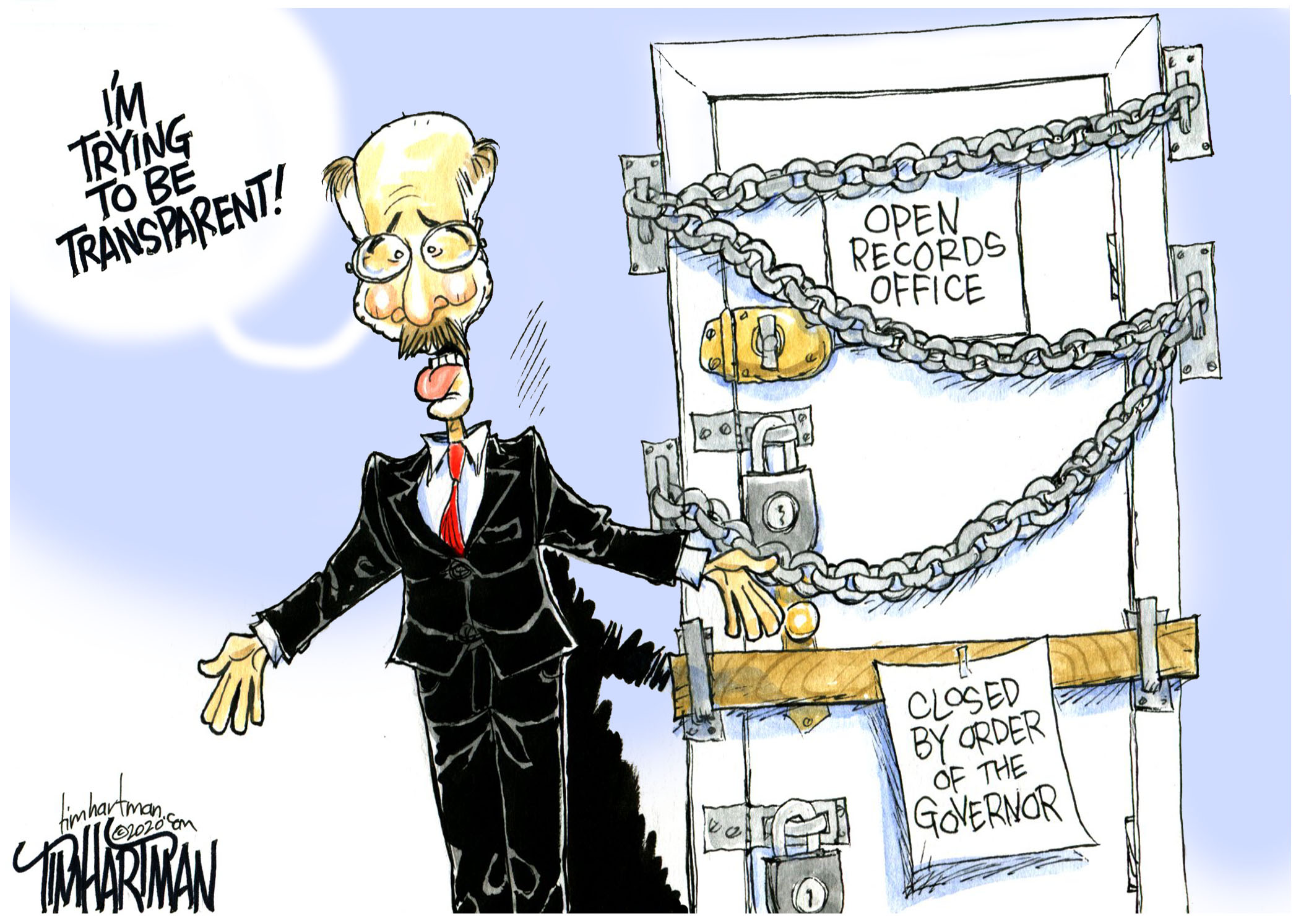A version of this commentary was published in the Pittsburgh Tribune-Review, Erie Times-News and the Morning Call.
In July, Gov. Tom Wolf concluded a weeks-long standoff with the state Legislature by caving. Despite repeated veto threats, he allowed a transparency bill—passed unanimously—to become law, but without his signature.
Wolf’s opposition to the benign transparency legislation, sponsored by Rep. Seth Grove (R-York), was a head-scratcher for many. How could a man who entered office saying, “It’s time to restore the public’s trust in our government by pushing for reforms and initiatives that increase openness and transparency,” now oppose the same principles?
Simply put, the bill exposed Wolf’s above-the-law approach to governing. Though that’s a significant victory, lawmakers have much more to do to keep the governor in check.
The transparency battle started when Wolf’s administration ignored Pennsylvania’s open records law soon after declaring Covid-19 a disaster emergency. Records requests from citizens, lawmakers, and journalists were put on ice for months during one of the biggest crises in state history.
Wolf specifically refused to provide details on his controversial waiver process--deciding which businesses could stay open and which must remain closed under his shutdown order. Small business owners and lawmakers questioned why some businesses forced to remain closed while competitors and big box stores were given a waiver to reopen. For months, Wolf provided no information about who received waivers, or the process by which companies were chosen. Nor would Wolf comply with a Senate subpoena for waiver details.
This secrecy undermined Pennsylvanians’ trust that the Wolf administration was playing fair. Even after Wolf belatedly agreed to release a list of waivers, he provided scant detail. His administration even revoked certain waivers the day before releasing the list, hiding select recipients from public scrutiny!
Transparency rules were an inconvenience, so Wolf did everything he could to skirt them. Unfortunately, flouting the law has become the new normal for Wolf during the pandemic. The governor even has trouble following his own rules.
After denouncing protests pushing for a faster reopening of the state’s economy, Wolf violated his own rules prohibiting large gatherings and marched in a Harrisburg rally. Wolf admitted attending the rally was “inconsistent”—and the public agreed. According to polling conducted in June, 57 percent of Pennsylvania voters disapproved of Wolf behaving like he is above the law.

In July, Wolf ignored the law again in a clash with Lebanon County. After county commissioners voted to “go green” earlier than he wanted, Wolf denounced the Republican commissioners at a taxpayer-funded press conference and called for voters to kick them out of office. In making political statements using public resources, Wolf violated Pennsylvania’s ethics law and should be fined, as any other government employee would be for breaking this rule.
Worse, to drive his political point home, Wolf withheld nearly $13 million in federal CARES Act funds from Lebanon County, starving 140,000 county residents of critical support.
This contradicts both federal and state law. Act 24 of 2020, which passed unanimously and which Wolf signed, contains a formula that governs how federal CARES Act funds will be distributed across the state. The bill does not give the governor authority to arbitrarily withhold funding. In doing so, Wolf violated the separation of powers and circumvented the Legislature.
Wolf is also defied Congress, which appropriated CARES Act funding to Pennsylvania, not to the governor. Members of Congress including U.S. Rep Dan Meuser and Sen. Pat Toomey called on Wolf to release the funds to Lebanon County. Congress intended this money to soften the impact of the economic crisis, not to be leveraged for political ends. Political retaliation is unbecoming a governor—especially when it breaks the law and especially when it exacerbates suffering during a pandemic.
Wolf’s pattern of lawlessness must be stopped—and lawmakers’ transparency victory could be the turning point that reins him in.
Lawmakers proved Wolf can be forced to do the right thing, and they should continue to build bipartisan support for fair and accountable government. Notably, after lawmakers introduced a Senate bill to release federal funds to Lebanon County, the governor reached a settlement with county officials allowing most of the funds to reach the people it was intended to help. That’s another encouraging sign the Wolf will back down under forceful opposition.
Wolf has made it clear he thinks certain laws don’t apply to him. With the state Supreme Court siding with the governor when his actions are challenged, Pennsylvanians are counting on the Legislature to uphold the rule of law.


